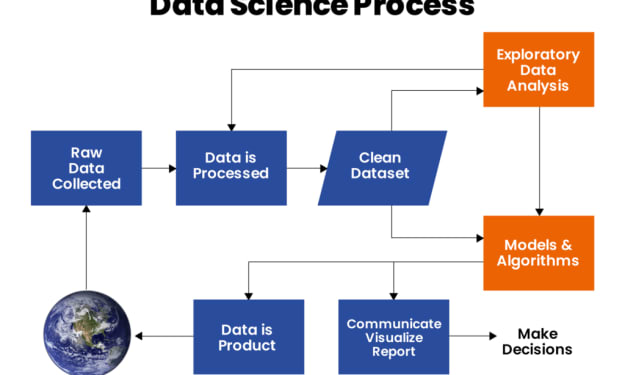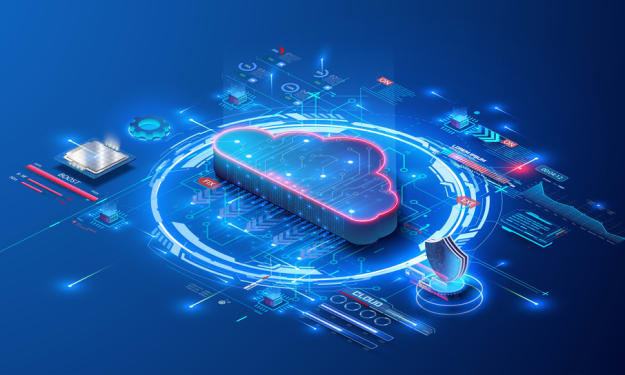Understanding the Distinct Worlds of Big Data and Cloud Computing
Differences Between Big Data and Cloud Computing
In the world of technology, two terms frequently emerge as pivotal players: Big Data and Cloud Computing. While often mentioned in tandem due to their interconnectivity in the digital world, these concepts are fundamentally distinct. This comprehensive guide aims to demystify Big Data and Cloud Computing, highlighting their differences and how they uniquely contribute to the technological ecosystem.
Defining Big Data
Big Data refers to extremely large datasets that are too complex and voluminous to be processed by traditional data-processing application software. These datasets are characterized by the three Vs:
Volume: The sheer amount of data generated from multiple sources.
Velocity: The rapid rate at which new data is generated and processed.
Variety: The diverse types of data, both structured and unstructured.
Key Aspects of Big Data
Data Analytics: Big Data involves advanced analytic techniques to extract valuable insights from data.
Data Management: It requires sophisticated tools and technologies for data storage, processing, and analysis.
Application Areas: Big Data is pivotal in sectors like healthcare, finance, and e-commerce, where large volumes of data are generated and analyzed for decision-making.
Defining Cloud Computing
Cloud Computing, on the other hand, is a technology that allows individuals and businesses to store, manage, and process data over the internet, instead of on physical hardware. Cloud Computing is characterized by:
On-Demand Availability: Resources are available from any location via the internet.
Resource Pooling: Shared resources are provided to multiple users, with each user’s environment being isolated and privately secured.
Scalability and Flexibility: It offers the ability to scale resources up or down as needed.
Key Aspects of Cloud Computing
Service Models: Includes Infrastructure as a Service (IaaS), Platform as a Service (PaaS), and Software as a Service (SaaS).
Deployment Models: Public, private, and hybrid clouds cater to different organizational needs.
Applications: Cloud computing is fundamental in hosting and running applications, data storage, and enabling remote work.
Differences Between Big Data and Cloud Computing
Nature of Technology: Big Data is about handling and analyzing large datasets, while Cloud Computing is about delivering computing services over the internet.
Primary Focus: The focus of Big Data is on data itself - its size, complexity, and the information it provides. Cloud Computing, in contrast, focuses on the infrastructure and platform that supports data storage, processing, and management.
Dependency and Interaction: While distinct, these two technologies often interact. Big Data technologies can be hosted on cloud platforms, leveraging the scalability and flexibility of the cloud.
Tools and Techniques: Tools for Big Data include Hadoop, Spark, and NoSQL databases, whereas Cloud Computing utilizes AWS, Azure, Google Cloud, and various virtualization technologies.
Impact on Business Strategy: Big Data influences how businesses gather insights and make data-driven decisions. Cloud Computing affects how businesses set up their IT infrastructure and manage their IT resources.
Conclusion
Understanding the differences between Big Data and Cloud Computing is crucial in leveraging each for optimal benefits. big data and cloud computing courses the insights, while Cloud Computing offers the platform for efficient data handling and management. In today's tech-driven world, both Big Data and Cloud Computing play vital roles in shaping business strategies and operational efficiencies. To know more you can join big data and cloud computing courses and most used programming languages for data science
FAQs
Q: Can Big Data exist without Cloud Computing?
A: Yes, Big Data can exist independently of Cloud Computing. Big Data refers to the processing and analysis of large datasets, which can be done on-premises or in the cloud.
Q: Is Cloud Computing necessary for Big Data analytics?
A: While not necessary, Cloud Computing often provides a more scalable and cost-effective platform for Big Data analytics, especially for businesses that lack the infrastructure for large-scale data processing.
Q: How do businesses benefit from combining Big Data and Cloud Computing?
A: Combining these technologies allows businesses to analyze large datasets with greater agility and reduced infrastructure costs, leading to more informed decision-making and efficient operations.
Q: Are there any security concerns with using Cloud Computing for Big Data?
A: Security is a paramount concern in both fields. Cloud providers offer robust security measures, but businesses must also implement best practices for data security and comply with relevant regulations.
Q: What skills are required to work in Big Data and Cloud Computing?
A: Skills in data analytics, machine learning, cloud architecture, database management, and programming languages like Python and SQL are essential in these fields.
About the Creator
Narendra Prajapat
I'm Narendra Prajapati working as an SEO Specialist at Hire SEOPro. I have more than 4+ years of experience in search engine optimization & manual link building.







Comments
There are no comments for this story
Be the first to respond and start the conversation.